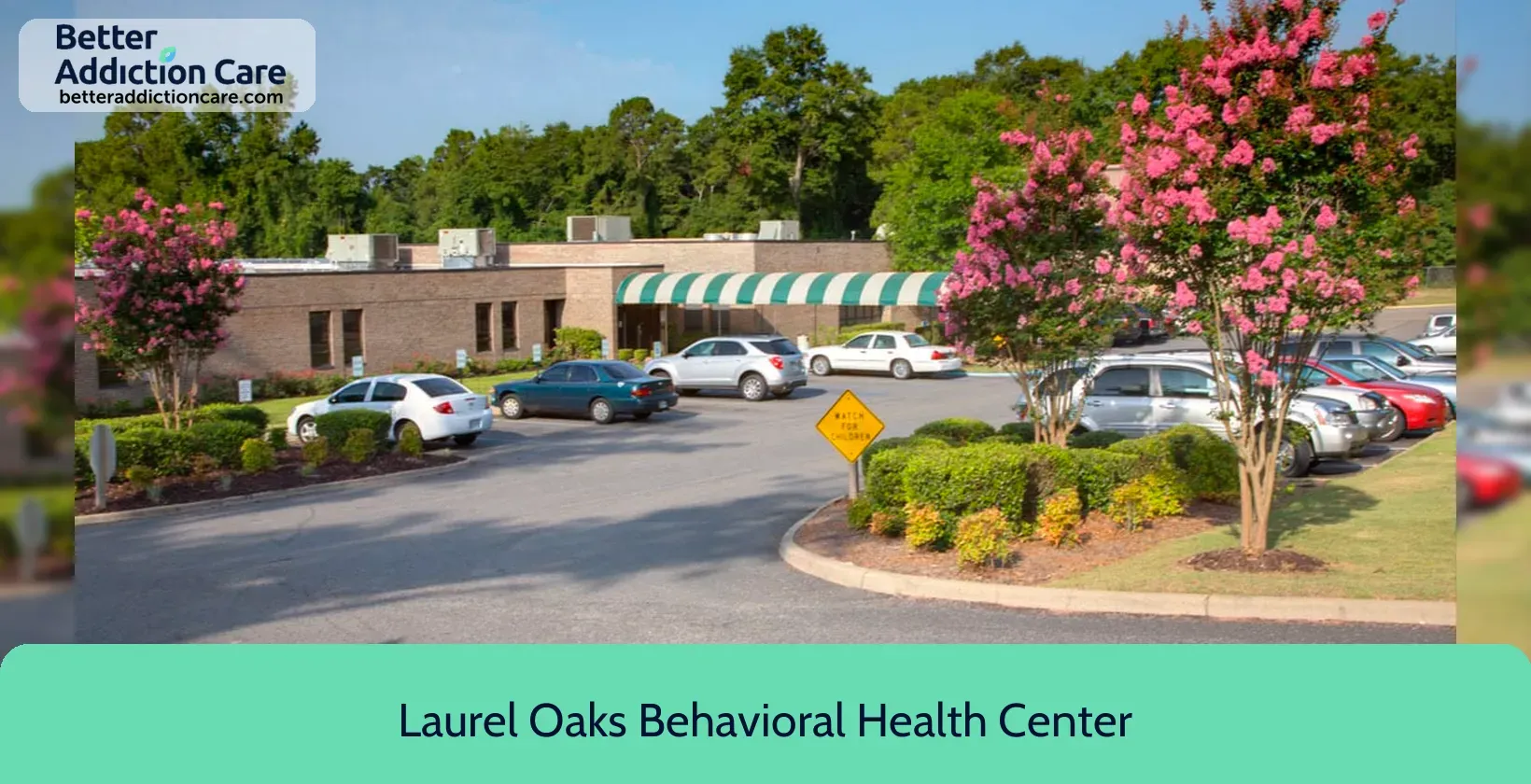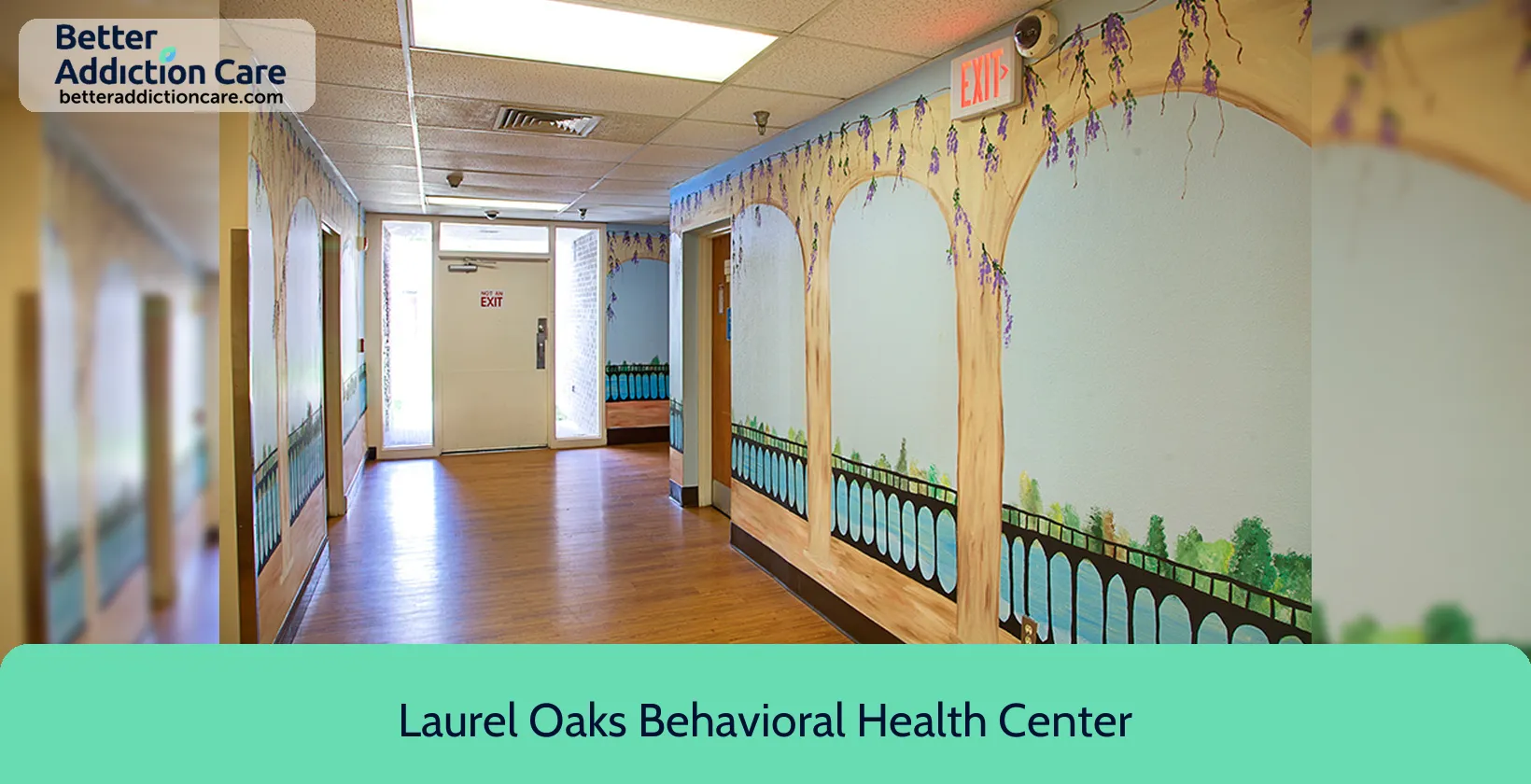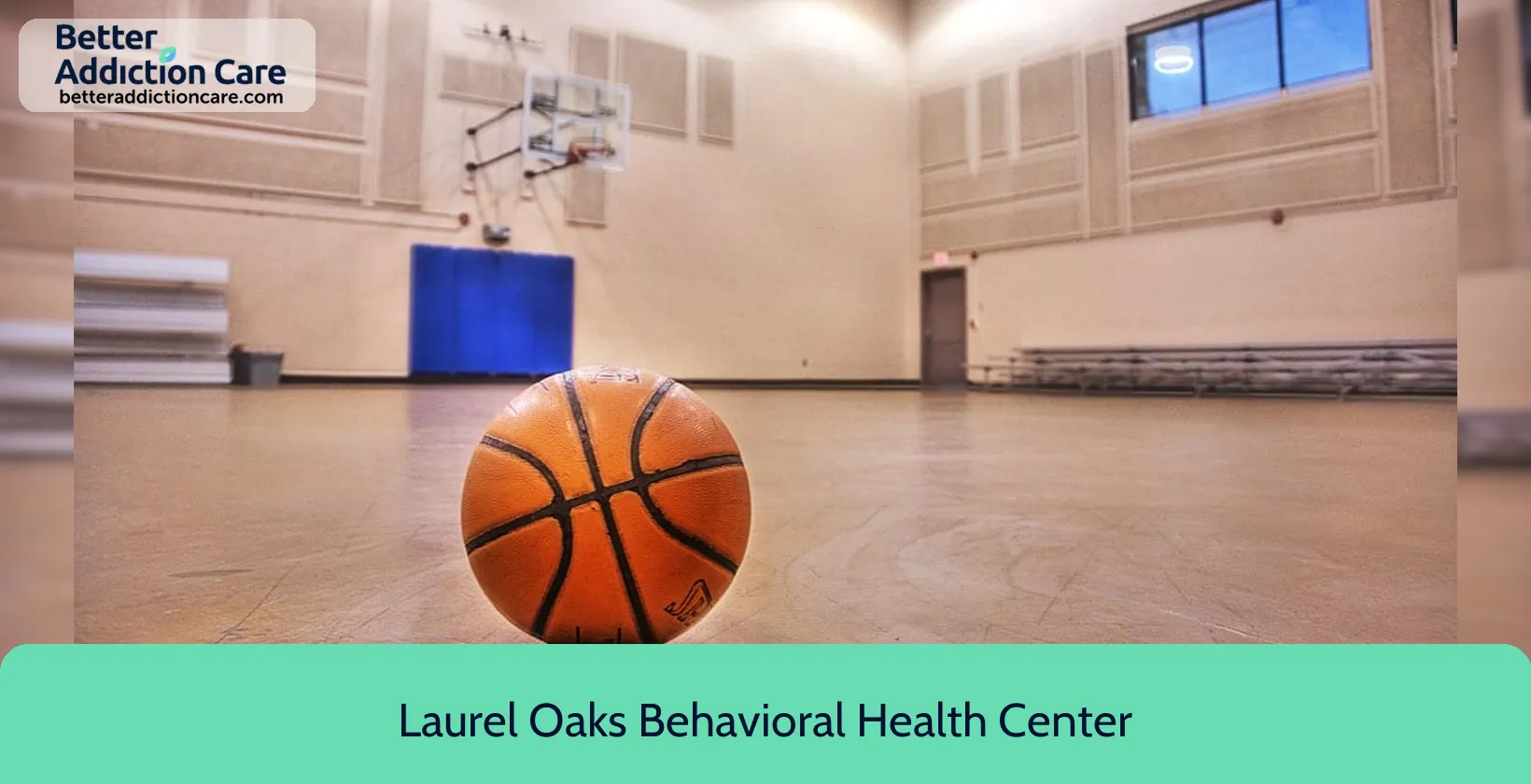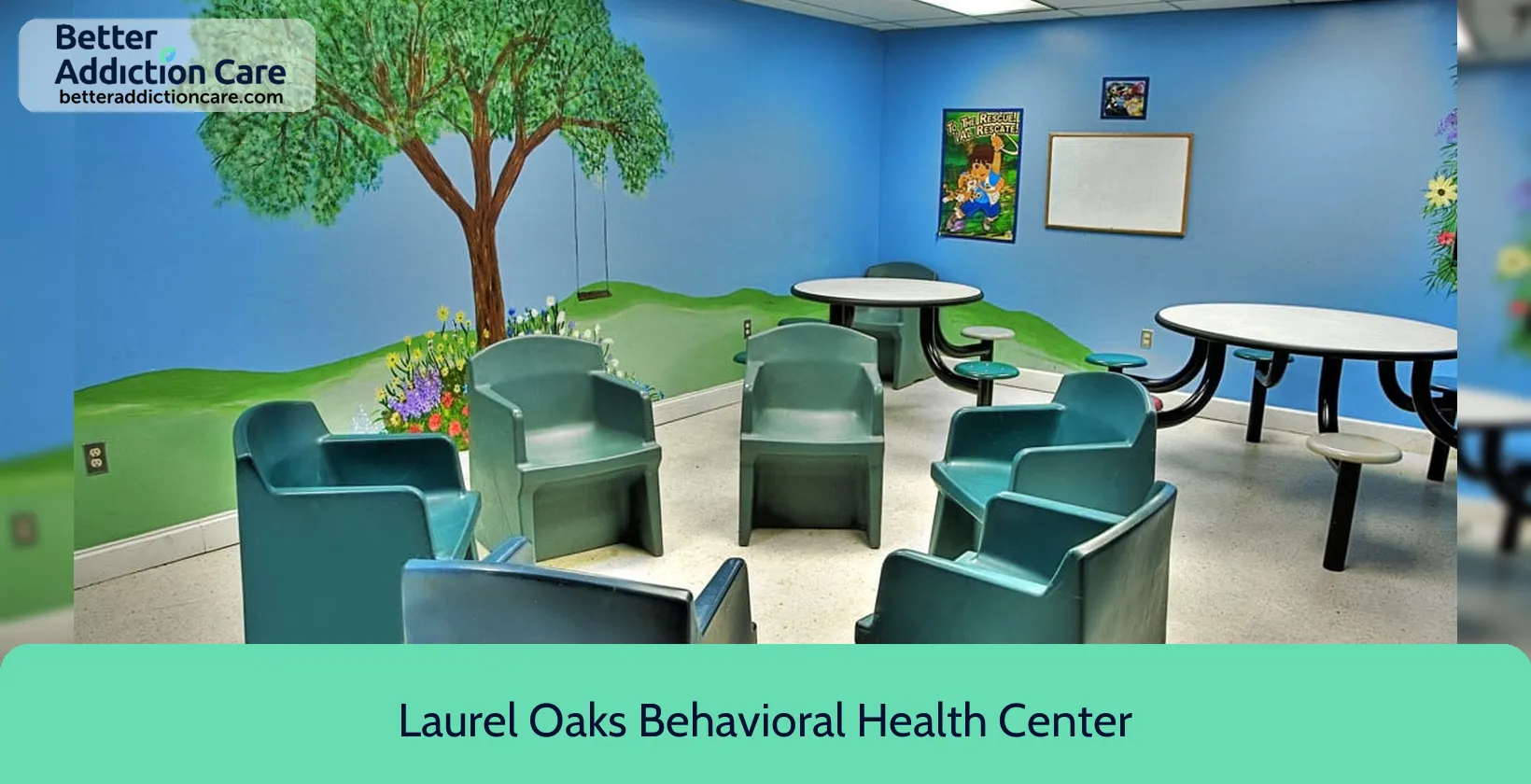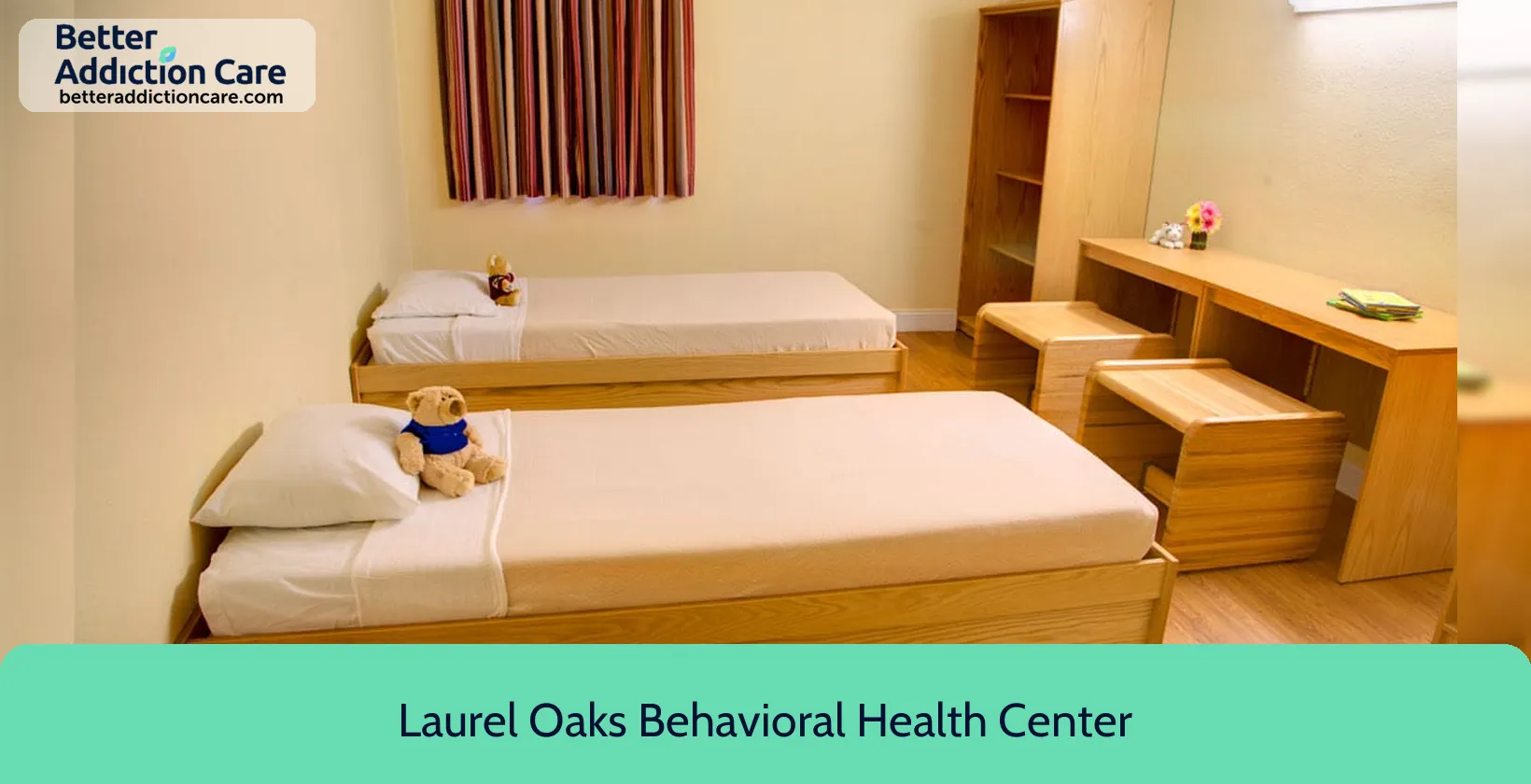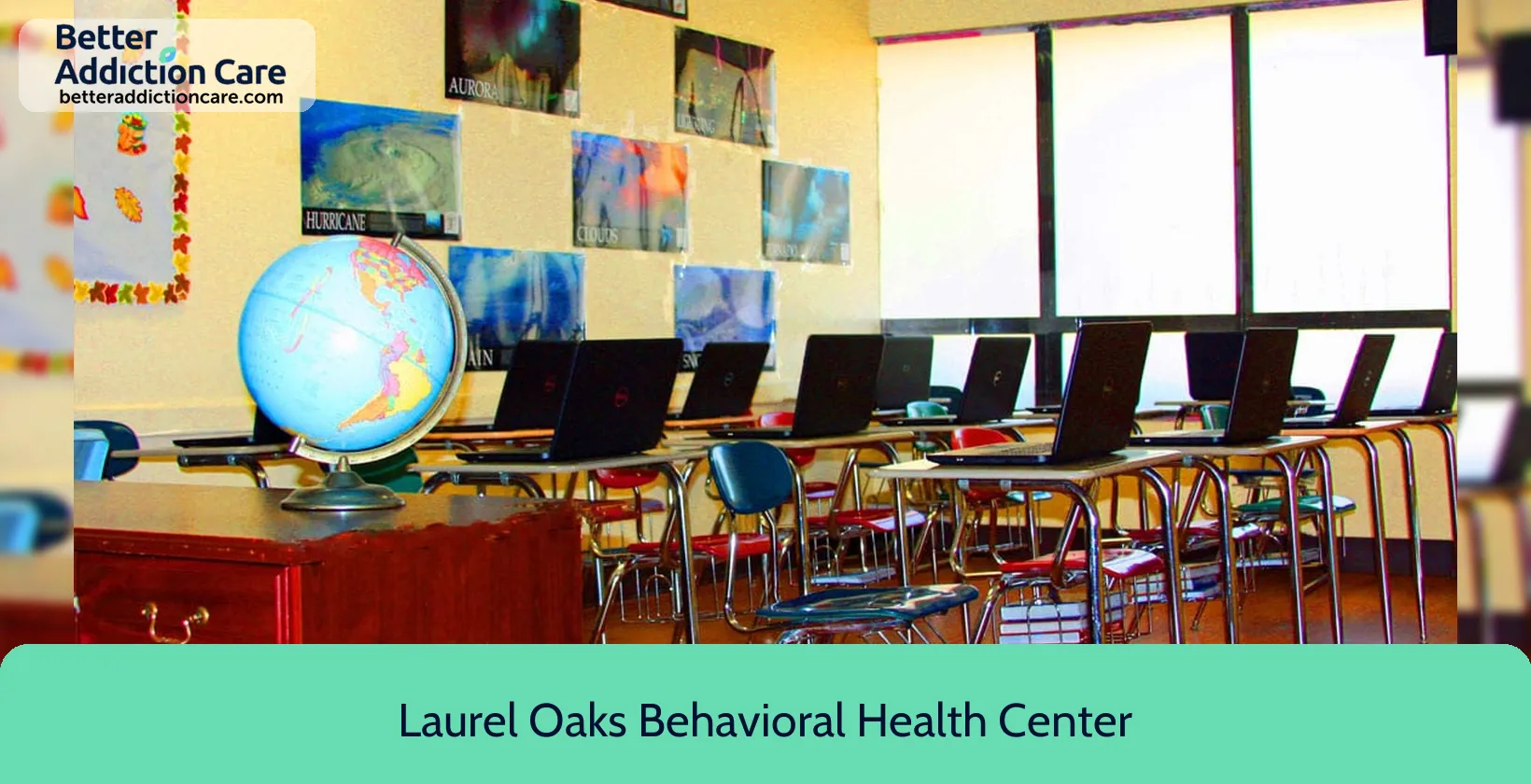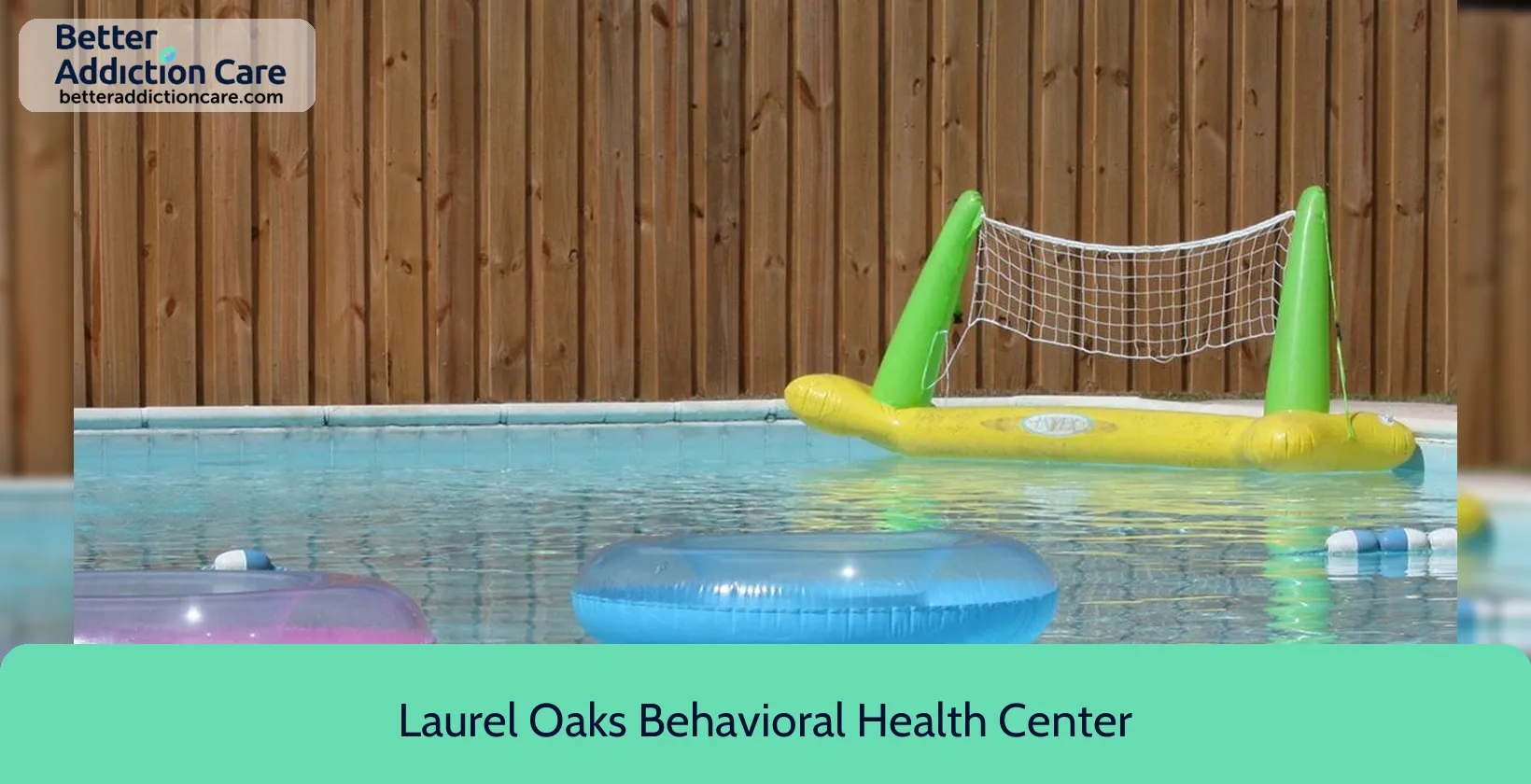Laurel Oaks Behavioral Health Center
Overview
Laurel Oaks Behavioral Health Center is a residential treatment center and comprehensive psychiatric facility situated in Dothan, Alabama. The facility offers specialized care for children, adolescents, men, and women, with a capacity of 118 beds. The facility is dedicated to the treatment of individuals who are grappling with mental health issues. It provides customized programs that are intended to facilitate personal growth and long-term recovery.
The center's programs are intended for children and adolescents between the ages of four and eighteen. The Child and Adolescent Acute Crisis Stabilization program, which addresses immediate psychiatric needs, and a Residential Treatment Program, which provides extended care for those requiring a more structured environment, are among the core offerings. The center also provides Case Management services, which may include outpatient services for post-treatment continued care. The New Day Academy, an academic program that is incorporated into the treatment process, is a distinctive feature of Laurel Oaks. Patients are permitted to pursue their education during their treatment by enrolling in six-hour classes each day. The academic credits acquired through the New Day Academy are entirely transferable upon discharge, thereby guaranteeing that young patients continue to make academic progress.
The therapies offered at Laurel Oaks Behavioral Health Center are diverse and are tailored to the unique requirements of each patient. The following are included: art and music instruction, recreational therapy, and life skills training to facilitate personal development and expression. Individual, group, and family psychotherapy are also available at the center, offering comprehensive support for emotional and psychological recovery. A comprehensive recovery approach that prioritizes both mental and physical well-being is promoted through the provision of additional services, such as anger management therapy, substance use education, and nutrition education.
The Joint Commission has accredited Laurel Oaks Behavioral Health Center, which is a testament to its dedication to the preservation of clinical excellence and high standards of care. For those who are interested in addressing psychiatric issues and acquiring the necessary skills for a healthier future, the center is a reliable resource due to its extensive selection of treatment programs, therapeutic offerings, and academic support.
Laurel Oaks Behavioral Health Center at a Glance
Payment Options
- Cash or self-payment
- Medicaid
- State-financed health insurance plan other than Medicaid
- Private health insurance
- Federal military insurance (e.g., TRICARE)
Assessments
- Comprehensive mental health assessment
- Comprehensive substance use assessment
Age Groups
- Children/adolescents
- Adolescence program
Ancillary Services
- Intensive case management
- Case management service
- Chronic disease/illness management
- Education services
- Family psychoeducation
Highlights About Laurel Oaks Behavioral Health Center
7.13/10
With an overall rating of 7.13/10, this facility has following balanced range of services. Alcohol Rehabilitation: 8.00/10, Drug Rehab and Detox: 6.00/10, Insurance and Payments: 6.93/10, Treatment Options: 7.58/10.-
Alcohol Rehabilitation 8.00
-
Treatment Options 7.58
-
Insurance and Payments 6.93
-
Drug Rehab and Detox 6.00
Accreditations
The Joint Commission:

The Joint Commission, previously known as JCAHO, is a nonprofit organization that accredits rehabilitation organizations and programs. Established in 1951, its mission is to enhance the quality of patient care and showcase excellence in healthcare delivery.
Treatment At Laurel Oaks Behavioral Health Center
Treatment Conditions
- Mental health treatment
- Substance use treatment
- Co-occurring Disorders
Care Levels
- Luxury Treatment
- Hospital inpatient treatment
- Hospital inpatient/24-hour hospital inpatient
- Hospital inpatient/24-hour hospital inpatient
- Aftercare
Treatment Modalities
- Couples/family therapy
- Group counseling
- Cognitive behavioral therapy
- Dialectical behavior therapy
- Integrated Mental and Substance Use Disorder treatment
Ancillary Services
Languages
- Sign language services for the deaf and hard of hearing
- Spanish
- French
- Korean
- Vietnamese
Additional Services
- Pharmacotherapies administered during treatment
- Housing services
- Laboratory testing
Special Programs
- Members of military families
- Clients who have experienced trauma
- Children/adolescents with serious emotional disturbance (SED)
- Persons with post-traumatic stress disorder (PTSD)
- Persons 18 and older with serious mental illness (SMI)
Get Help Now
Common Questions About Laurel Oaks Behavioral Health Center
Contact Information
Other Facilities in Dothan

6.56

6.90
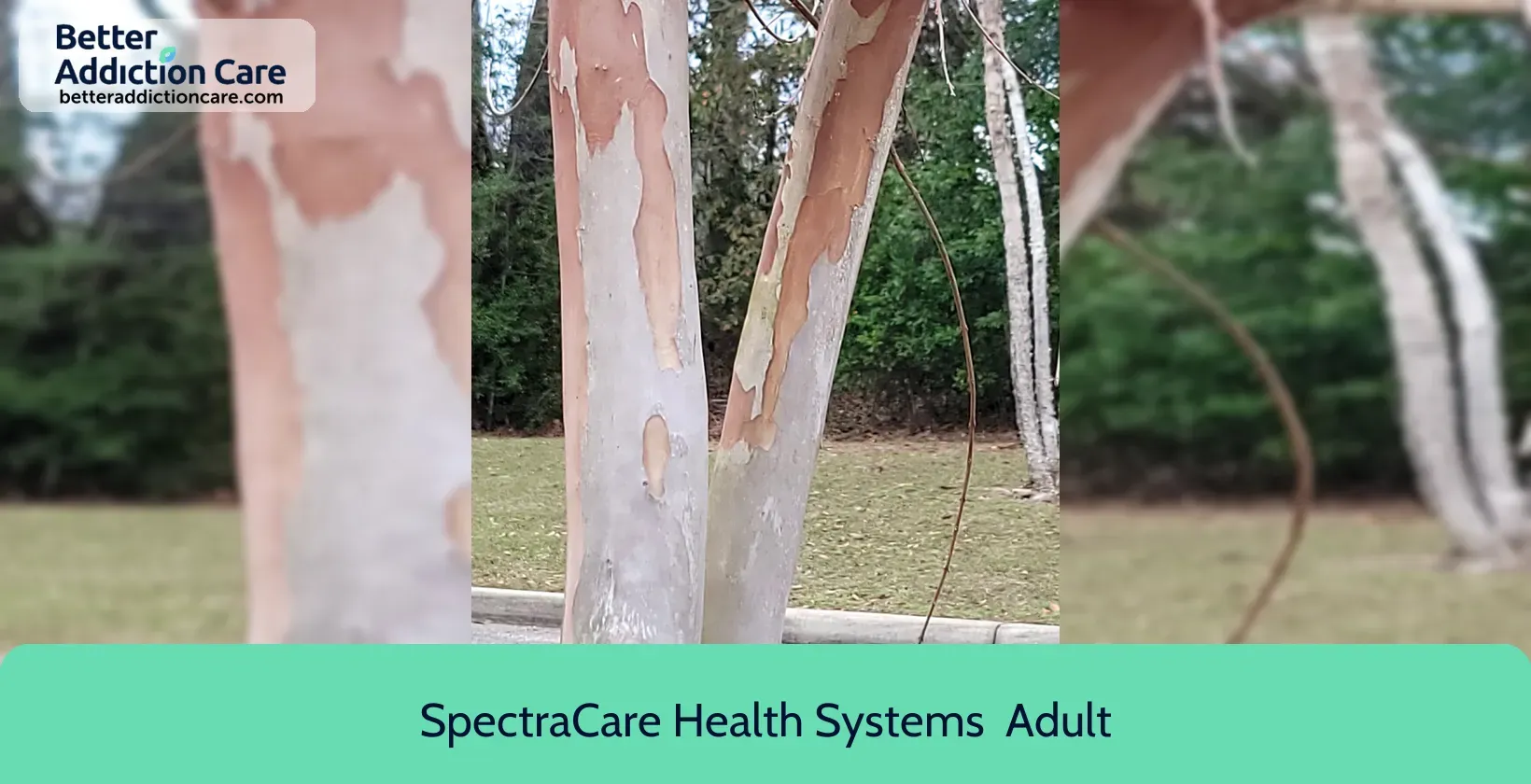
7.19
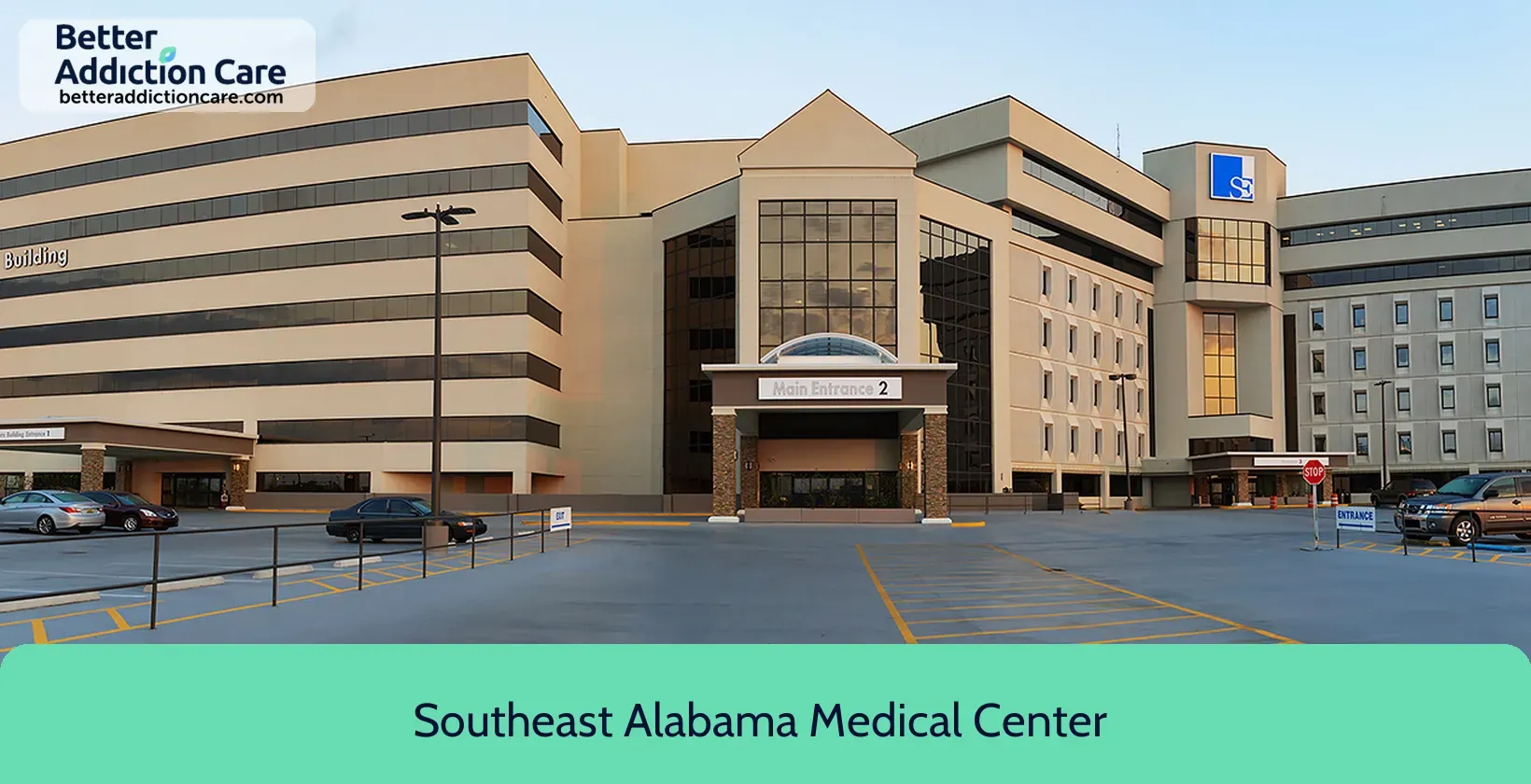
6.56
DISCLAIMER: The facility name, logo and brand are the property and registered trademarks of Southeast Alabama Medical Center - Behavioral Medicine Center, and are being used for identification and informational purposes only. Use of these names, logos and brands shall not imply endorsement. BetterAddictionCare.com is not affiliated with or sponsored by Southeast Alabama Medical Center - Behavioral Medicine Center.
